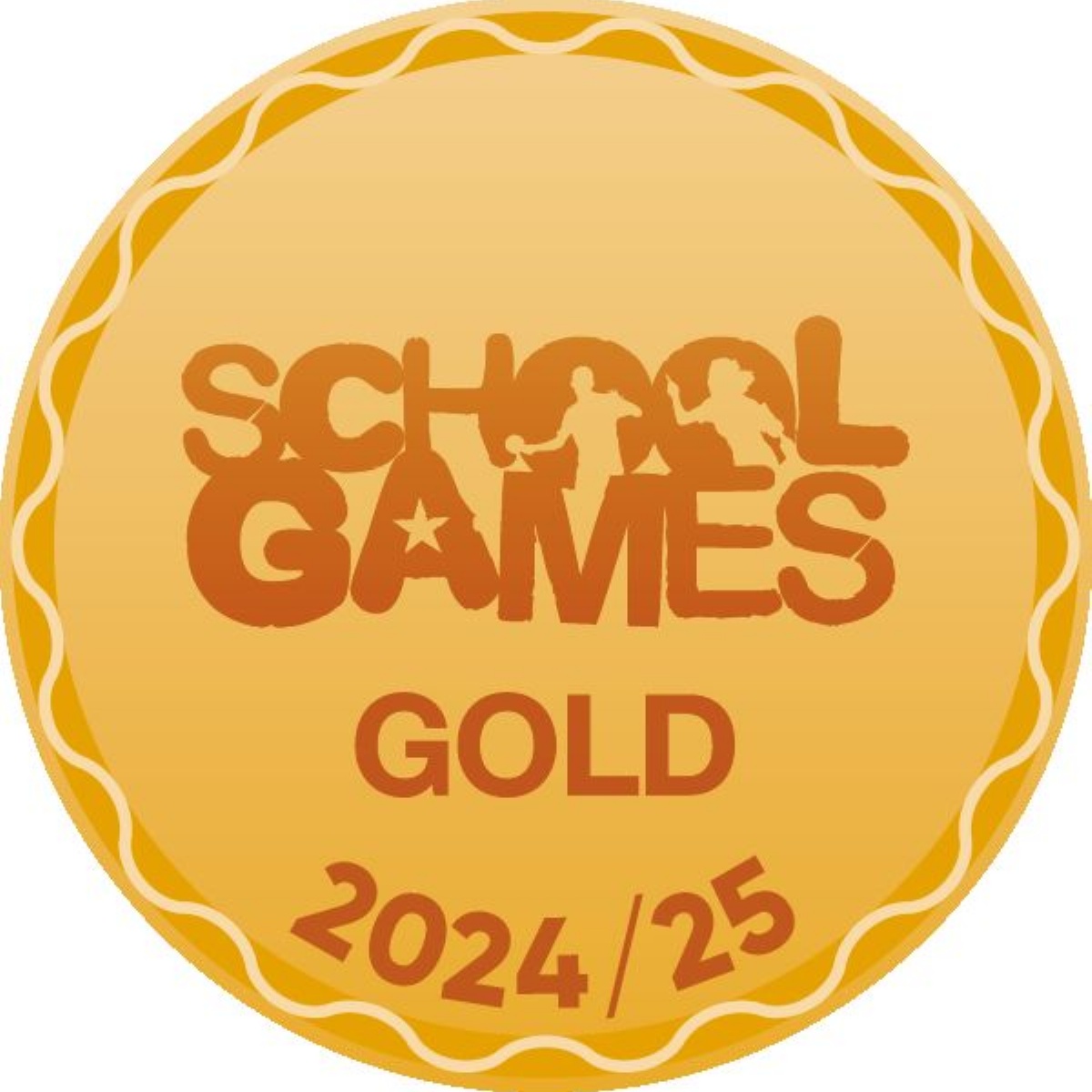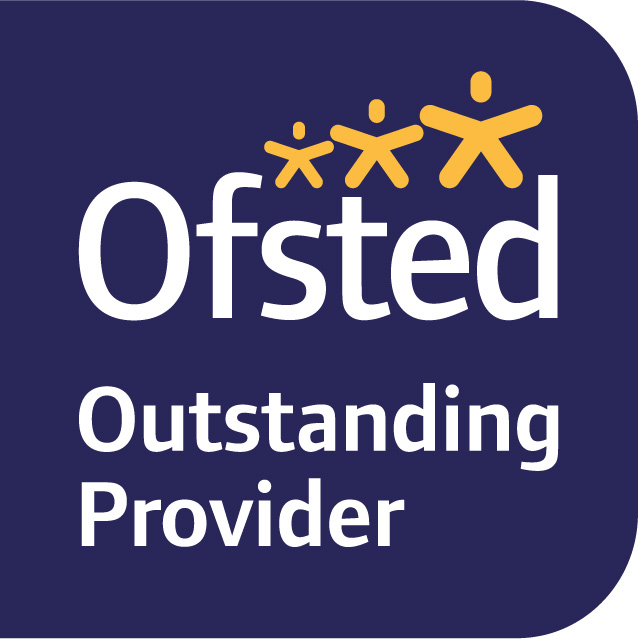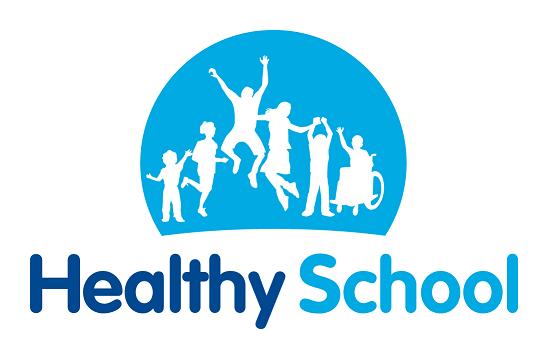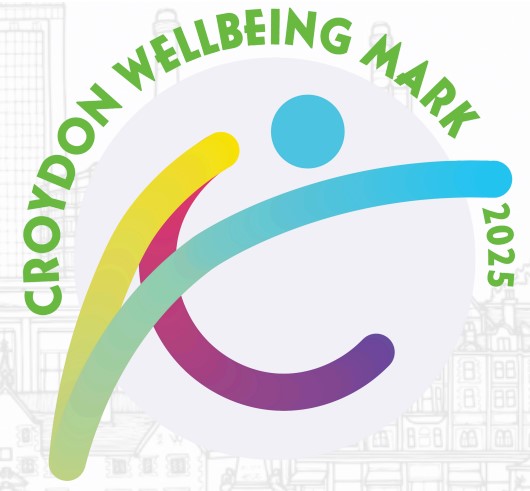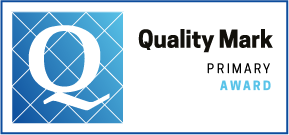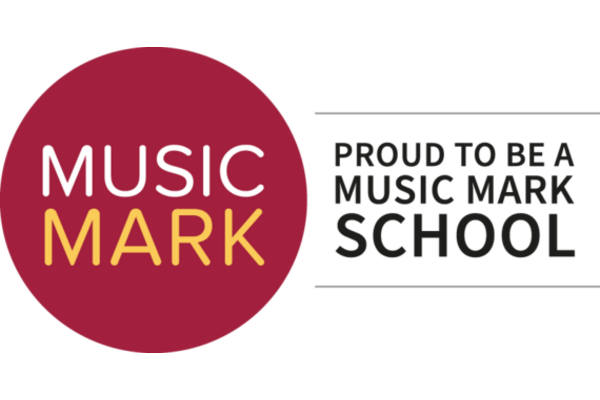Computing
Intent: ‘Computing education is important for all pupils to make sense of and contribute positively to our technically diverse world. A high-quality computing education equips pupils to use computational thinking and change the world’.
| EYFS | Year 1 | Year 2 | Year 3 | Year 4 | Year 5 | Year 6 | |
| Autumn 1 | Mini Mash | Online Safety, Exploring Purple Mash & Grouping and Sorting |
Coding | Coding | Coding | Coding | Coding |
| Autumn 2 | Mini Mash | Pictograms & Lego Builders |
Online Safety & Spreadsheets |
Online Safety & Spreadsheets |
Online Safety & Spreadsheets |
Online Safety & Spreadsheets |
Online Safety & Spreadsheets |
| Spring 1 | Mini Mash | Maze Explorers & Animated Story Books |
Questioning | Touch Typing & |
Spreadsheets continued & Writing for Different Audiences |
Spreadsheets & Databases |
Blogging & Text Adventures |
| Spring 2 | Mini Mash | Animated Story Books continued & Coding |
Effective Searching & Creating Pictures |
Email continued & Branching Databases |
Writing for Different Audiences continued & Logo |
Game Creator & 3D Modelling |
Networks & Quizzing |
| Summer 1 | Mini Mash | Spreadsheets | Creating Pictures | Simulations & Graphing |
Animation & Effective Searching |
Concept Maps & Word Processing |
Understanding Binary |
| Summer 2 | Mini Mash | Technology Outside School | Making Music & Presenting Ideas |
Presenting | Hardware Investigators & Making Music |
Word Processing Continued & External Devices |
Spreadsheets |
At Beaumont Primary School, we believe a high-quality computing education equips all children, including disadvantaged children and children with SEND, with the skills and knowledge in computational thinking and creativity to help them to understand the world that they live in and be able to be ambitious, successful young people. Computing is a significant part of everyone’s lives and we believe that children should be at the forefront of new technology to complement and enhance their learning and experiences in a broad and balanced way. Computing has strong links to a variety of other subjects such as mathematics, science, design and technology and therefore we believe that, as an essential part of the curriculum, it is also integrated into all areas of learning, using a range of hardware, software and opportunities. At Beaumont, we recognise that pupils are entitled to quality software and hardware and a structured and progressive approach to the learning of the skills needed, to enable them to use it effectively. We also recognise the importance of responding to new developments in technology and aim to equip our pupils with the confidence and capability to use a range of different devices to enhance their experiences. We strive to provide a relevant, progressive and enjoyable curriculum for all pupils, as well as using it for a tool to enhance learning throughout the wider curriculum.
Computing as a stand-alone subject has a number of key components, each of which we aim to teach and fully embed.
These are:
- Computer Science – Pupils are taught the principles of information and computation, how digital systems work, and how to put this knowledge to use through programming.
- Information Technology – Pupils are equipped to purposefully create programs, systems and a range of content in order to develop products and solutions. They will be able to collect, analyse, evaluate and present data and information.
- Digital Literacy – Pupils are taught to use, access and express oneself through digital technology, including a critical understanding of technology’s impact on the individual and society, at a level suitable for the future and as active participants in a digital world.
We also firmly believe the importance of delivering a high-quality Online Safety curriculum, alongside the core values of these three stands. Online Safety is fully embedded throughout the computing curriculum and supports and consolidates the strong presence of how to keep safe online within our PSHE curriculum. As technology develops, so does the need for a better understanding of how to use it in a responsible manner. The education of Online Safety is therefore essential, to ensure children are equipped with the skills to recognise risks online, to be critically aware of the materials and content they access online, along with guidance on how to accurately validate information accessed via the internet.
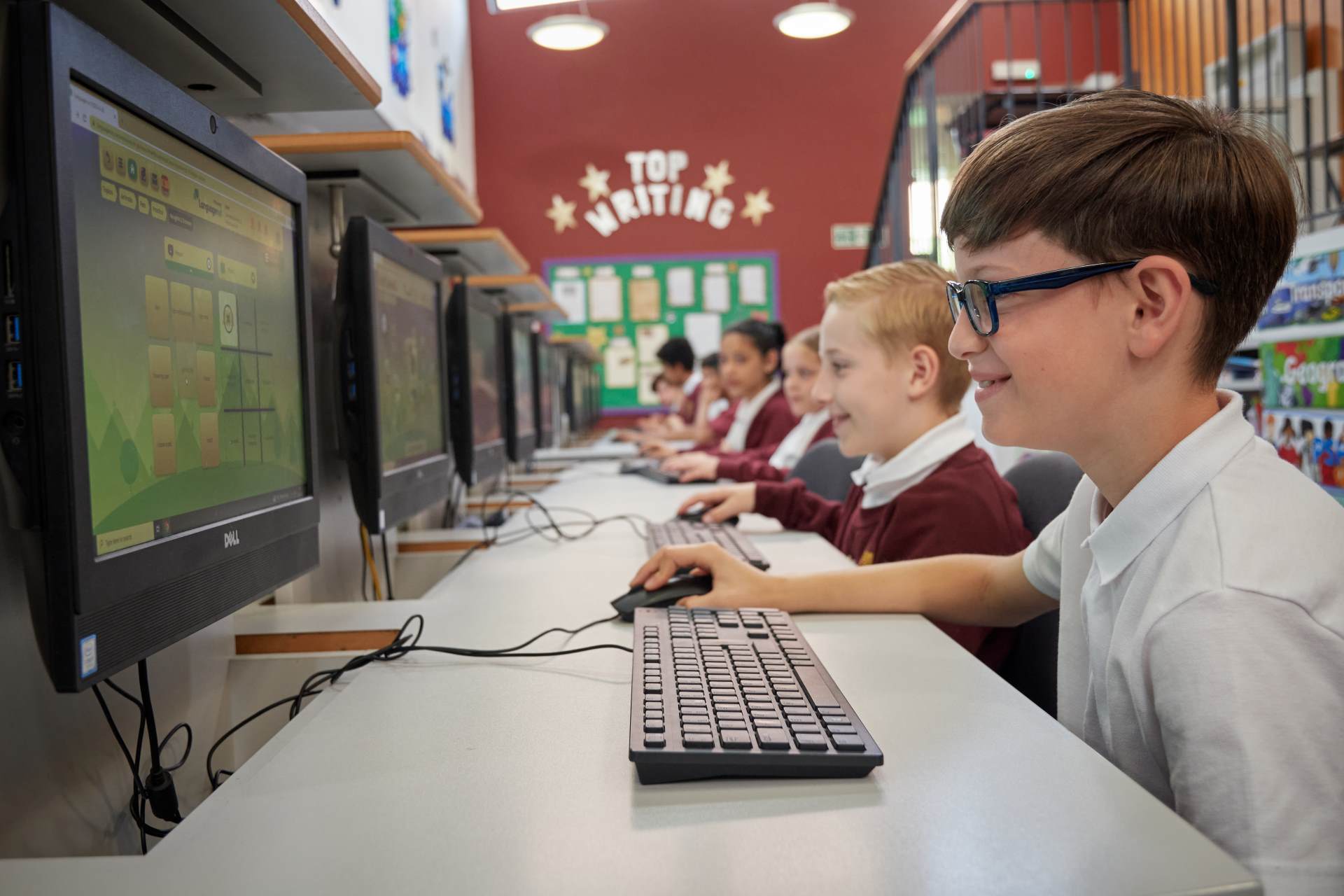
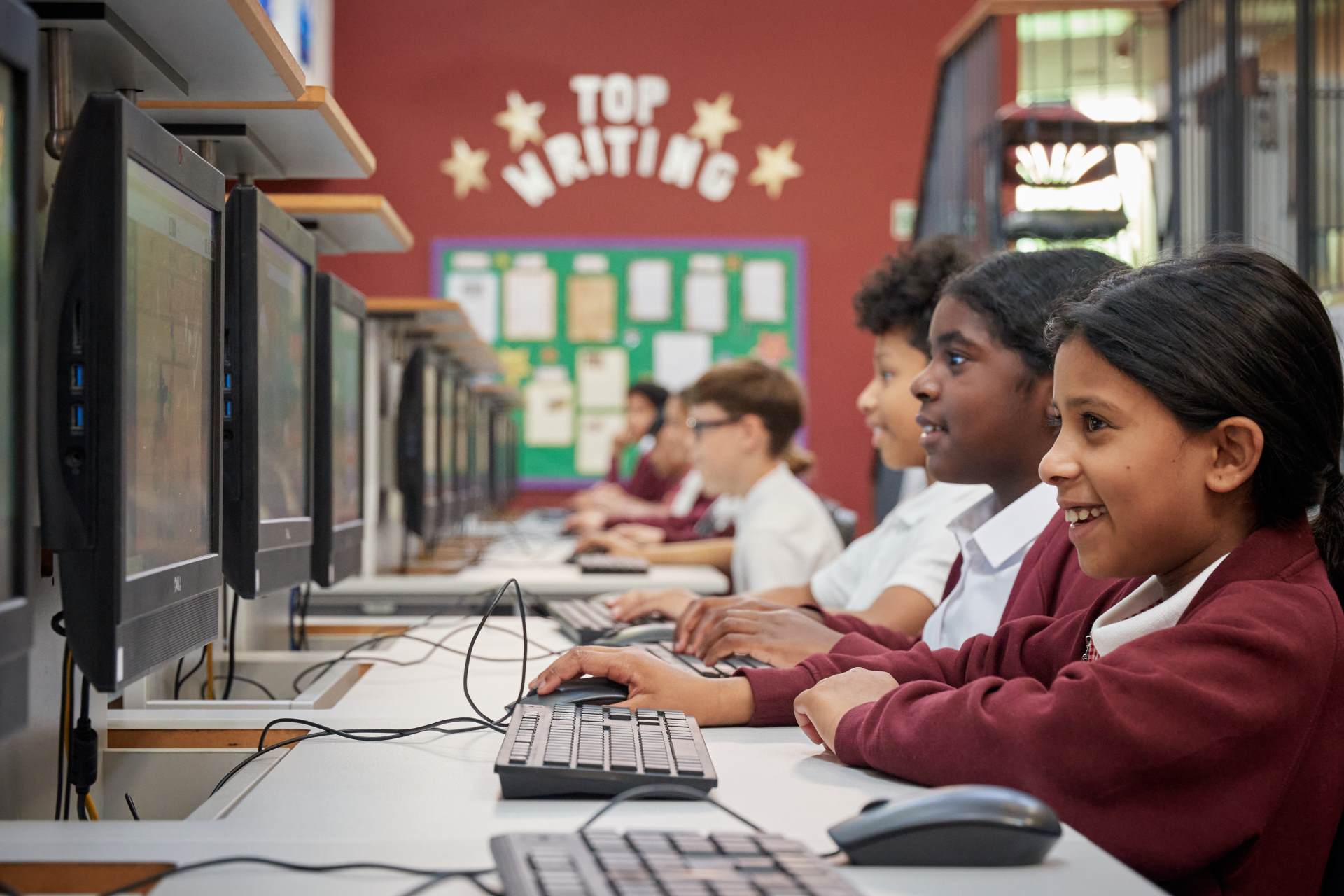
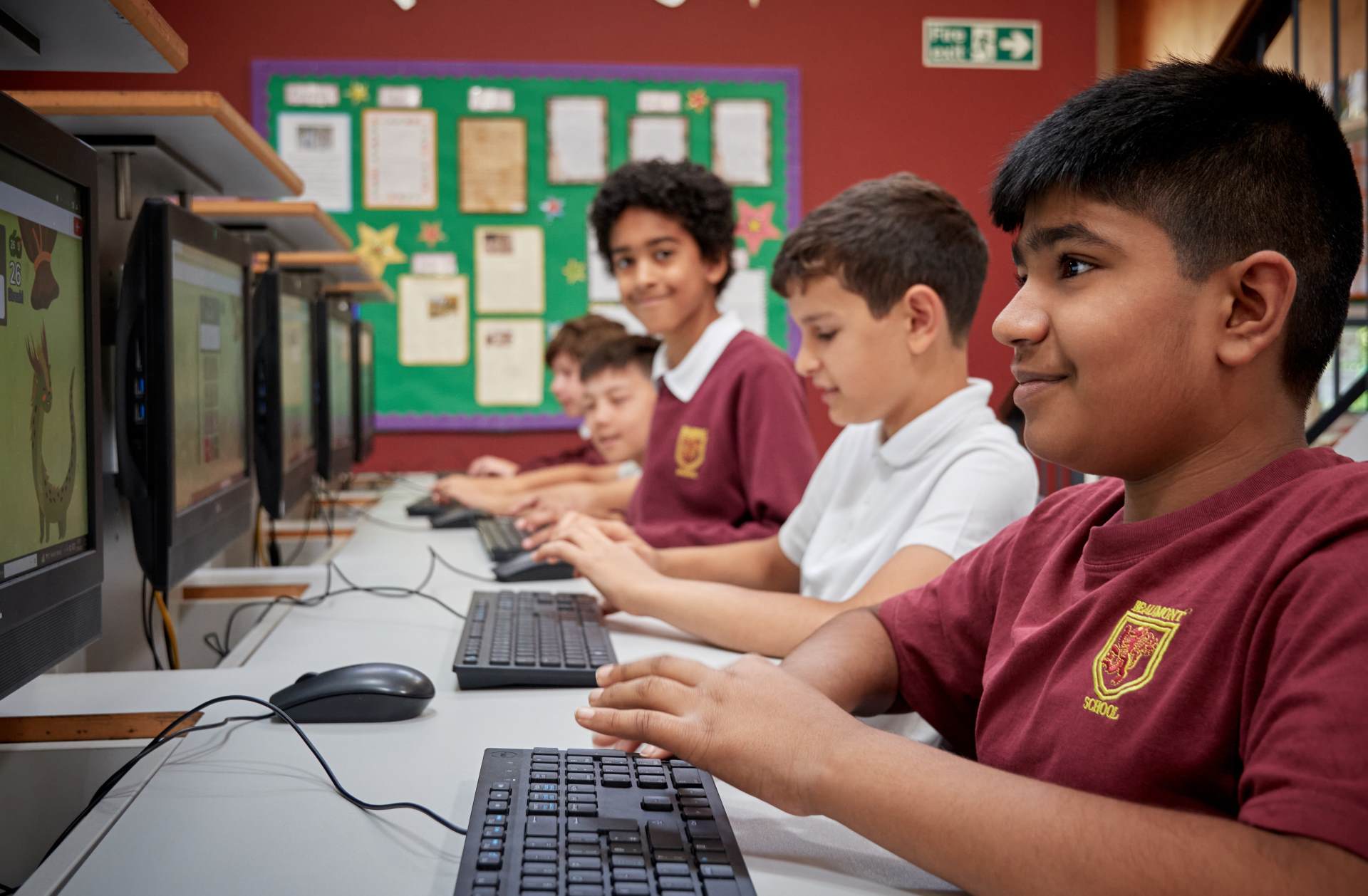
Implementation
Pupils participate in regular Computing lessons in order to achieve the intent of the Computing and Online Safety curriculum at Beaumont Primary. In addition to stand-alone lessons, skills taught are incorporated into other subjects, given the cross curricular nature of computing and the opportunities to expand and develop lessons that this brings. The delivery of computing and Online Safety is planned in line with the National Curriculum and allows for clear progression as children move through each stage of their education with us. Teachers use ‘Purple Mash’ as a scheme to support their planning and delivery, which caters for all children, including those with SEND and from disadvantaged backgrounds.
Each year, children are taught the three main components of computing (Computer Science, Digital Literacy and Information Technology) which allows children to build on and progress from their previous experiences, developing their skills, vocabulary and understanding in order to be active, responsible digital participants. We have also identified key skills that are required in order to access and achieve key objectives within the curriculum. Online Safety is referred to in every computing unit, in addition to discrete units taught at some point throughout the year. Our Online Safety lessons build on prior knowledge and are adapted/modified to suit the requirements of the pupils within the class and current issues that may be relevant.
At Beaumont, we strive to engage parents and carers with the importance of safe and responsible behaviour online and hold an annual workshop, which is modified each year with relevant content and support materials. Pupils also take part annually in ‘Safer Internet Day’, also known as SID, following the suggested theme, which reflects current issues.
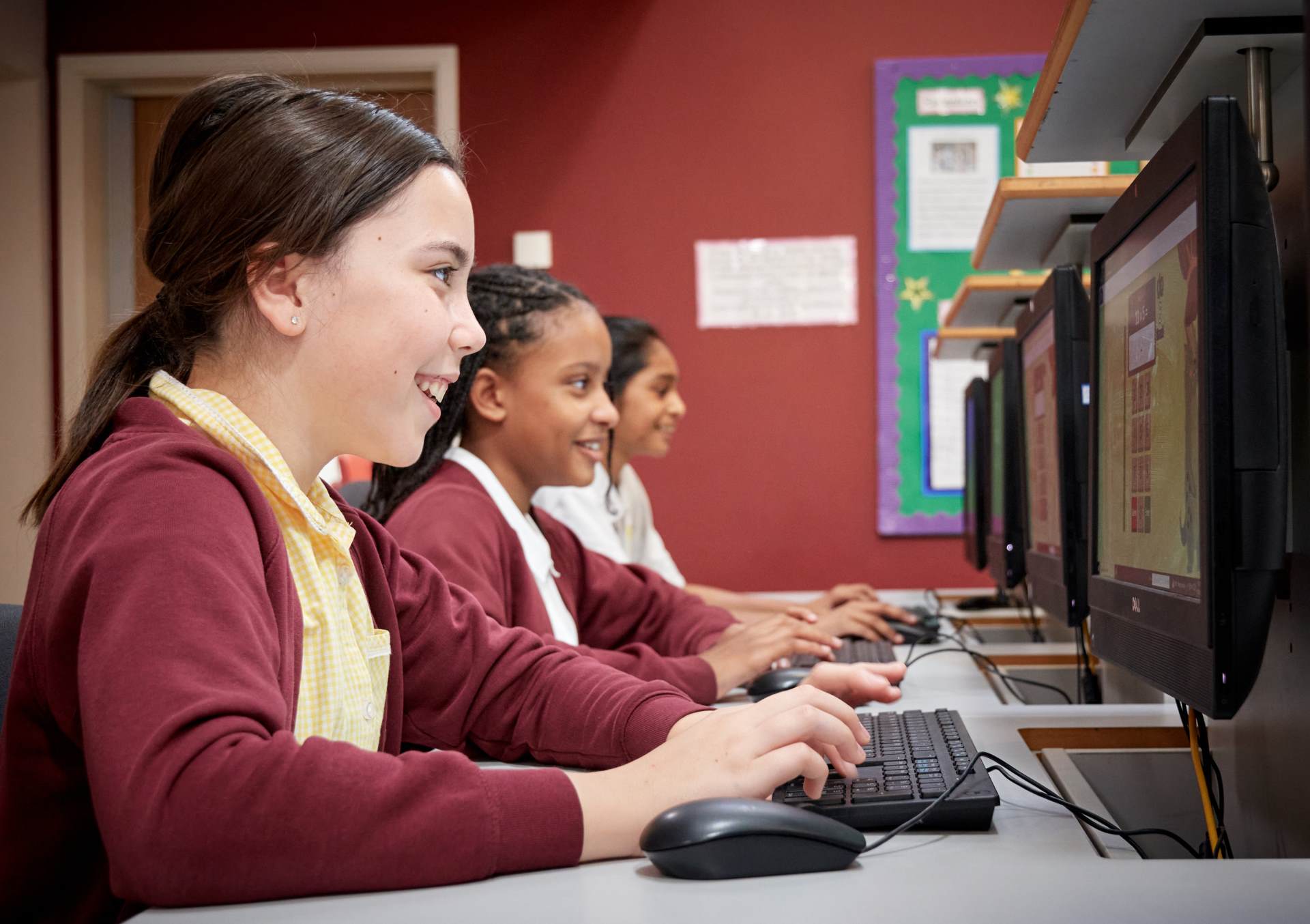
We recognise the need to continually maintain, update and develop resources to ensure the effective delivery of the National Curriculum and support the use of technology throughout the school.
This includes:
- Interactive whiteboards in every classroom to enhance and promote effective use of technology for learning.
- 10 iPads for pupil use in both discrete lessons and across the wider curriculum in every class
- 2 ipads in each classroom as an additional resource to support teaching and learning for adults.
- A range of programmable devices such as BeeBots and Probots.
- Data Loggers to collect and analyse data
- Subscription to online content such as: Purple Mash, FFT, Language Nut and Spelling Shed to promote learning in school and remotely through home access.
- The use of ‘Microsoft Teams’ to promote and support communication and collaboration across the curriculum.
Lessons are planned to provide for and include all children, including those with SEND, higher achieving/gifted and talented pupils, pupils with EAL needs and pupils from all social and cultural backgrounds. Pupils without home access are supported and catered for accordingly.
In Key Stage One
The children will learn to understand what algorithms are, how they are implemented as programs on digital devices; and that programs execute by following precise and unambiguous instructions. They will be taught how to create and debug simple programs and use logical reasoning to predict the behaviours of simple programs. They will be shown how to use a range of technology purposefully to create, organise, store, retrieve and manipulate digital content as well as recognise common uses of technology beyond school. They will be taught to use technology safely and respectfully, keeping personal information private; identify where to go for help and support when they have concerns about content or contact on the internet or other online technologies.

In Key Stage Two
The children will build on their knowledge and experience from Key Stage One and will design, write and debug programs that accomplish specific goals by decomposing them into smaller parts. They will use sequence, selection and repetition in programs, use logical reasoning to explain how some simple algorithms work and correct errors in their own and existing programs. Pupils will be taught to understand computer networks, including the internet, and the opportunities they offer for communication and collaboration. They will use search technologies effectively, learn to appreciate how results and selected and ranked, and be discerning in evaluating digital content. Pupils will be taught to select, use and combine a variety of software (including internet services) on a range of digital devices to create a range of programs, systems and content that achieve given goals. They will be taught to use technology safely, respectfully and responsibly; recognise acceptable and unacceptable behaviour and be clear how to identify a range of ways to report concerns about content and contact to keep themselves and others safe.
Impact
After each unit of work, teachers will make a judgement on whether pupils have met, exceeded or are working towards the objectives set. This will also provide information for the subject leader and will be submitted for analysis to track and monitor achievement and progress and the impact that this has had. Evidence of progression and achievement will be seen in examples of pupils’ work stored on the server. As a result of effective implementation, pupils will be able to apply their skills and knowledge in other areas of learning.
Pupils will be able to share their knowledge of how to be a responsible user of technology through discussion when questioned. They will be prepared for the next stage in their lives, knowing how to be a responsible user of technology in the wider world and most importantly, know where to seek support. Pupils will be familiar with and will discuss their understanding of the three main strands and will know key vocabulary associated with these. Confidence in this subject will also mean that pupils are able to be more independent and competent in life skills such as problem solving and logical thinking.
Documents
- 12 rules for responsible ICT use in KS2
- 2025 Computing Scheme Unit Descriptions
- Computing Overview 2024 - 2025
- Computing Policy 2024-2025
- CSOW Long Term Plan Sept 2025
- Glossary of Online Safety Terminology
- Internet Safety Agreement EYFS
- Online Safety Progression in the SoW
- School rules for responsible IT use - KS1


